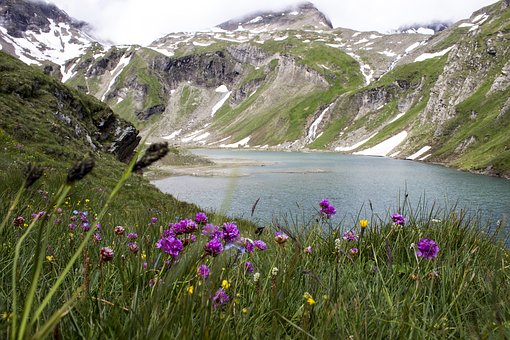I lay shivering in my sleeping bag, muscles clenched against the cold. How was I ever going to get warm? 10,000 feet up in the Mountains of the Moon in a remote corner of Uganda, I wondered whether I would ever be warm again. I fretted about whether I would ever get out of those mountains, frankly. Would I die here, too weak to make the two day trek out of the mountains, dehydrated from a stomach bug that had me lurching out to the latrine every half an hour? No help was likely to come for several days: we’d sent a messenger on ahead but it would take at least four days for him to reach civilisation and return with help. There was no radio, no satellite phone, nothing technological to help. O God, I prayed. Our wedding is only a month away. I so want to get to that day.
Twenty-four hours earlier, we’d reached the turning point of our trip. Three days in to our trek into the mountains, having climbed to 14,000 feet, we’d reached snow despite being close to the equator. We’d stayed the night in a wooden hut beside a beautiful tarn, knowing that we would reach a pass and begin our descent the next day. It should have been an evening to celebrate our achievement but instead I’d struggled with the mother of all headaches. I’d started the medicine for altitude sickness, noted the weird side effect of tingling round my mouth, and gone to bed early. Next morning as I struggled up the last incline to reach the pass, I started to vomit. Our guides were concerned. They’d carried a corpse out the previous week: a tourist had succumbed to altitude sickness. They started to give me piggy backs to conserve my energy.
Later they found some long branches in a cave and fashioned a stretcher. Encased in a sleeping bag, I was bound onto the branches with ropes and borne by six people as they struggled through the endless bog that covers those mountains. All I could see was the sky; I dozed off in relief at being cared for. Later someone asked me if I was scared: I was surprised at the question. ‘Didn’t you realise they were carrying you down a waterfall?’ they asked. Fortunately I hadn’t.
Now, shivering in the hut, I was all too aware what was going on. Anxiously my husband-to-be leafed through the medications he had brought in a first-aid-kit. He didn’t have the kit to give me intravenous fluids. He guessed which antibiotics might help my gut and prayed that I would keep them and the anti-sickness tablets down. He made up rehydration solution for me to sip slowly. Graciously he dealt with my bowls of vomit. This is true love, I thought.
Thankfully I did get warm eventually. The next day I was strong enough to continue the descent. We got through, and we’ve dined out on the story ever since.
But my mother-in-law-to-be was not so impressed. ‘You’d better take better care of her in future, Peter’, she scolded, when she heard the story. I wondered whether I should have listened better to my intuition that had been nagging at me before the trip. I’d been unsure that I should go, and had only gone because Peter wanted me to. Should I have spoken my doubts louder?
Gavin de Becker, in his best-selling book ‘The Gift of Fear’ argues the importance of listening to our intuitive sense of dread about a proposed course of action because he says it can often save our life. Even though such inner knowledge may not appear to have a logical cause, he cites many instances in which people have found it an important warning system.
Experience of several episodes of depression has taught me that it is better to admit my limitations than to pretend I can cope with things I can’t, because then I end up letting people down.
But is being sensible the best way to live? Is it truly wise? What about my artistic relative’s favourite maxim, ‘Life is not a rehearsal’ ? If I’d not gone on that trip, I wouldn’t have the story to relish all these years later. What about ‘Attitude trumps aptitude’? I’m told that if I have a positive attitude I can turn around most things, even those that seem hopeless at first. If I always play safe, I may never discover what possibilities I’m missing.
Because of Covid, we’ve spent a year being sensible, weighing risk, caring for others by not doing things, keeping safe. As the pandemic wanes, will the trauma of it mean we are going to continue shutting down our possibilities, or will we find ways to break out, to take risks again, to live life to the full?


I’m glad to hear that you made it through such a difficult experience. I can’t even imagine how awful you must have felt. I hope you have wonderful, safe adventures in the future!
LikeLike
Thank you Tia!
LikeLike
As someone who is generally pretty cautious, I tend to think I should have taken more risks in life!
But the other question is, whose risk? With Covid, the risk is often not to ourselves but to others, and then caution seems sensible…
LikeLike
Indeed..it’s a weird one when you have to do nothing to protect people…
LikeLike